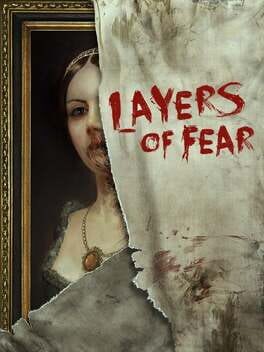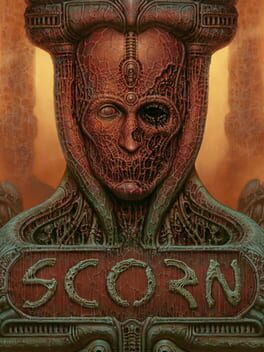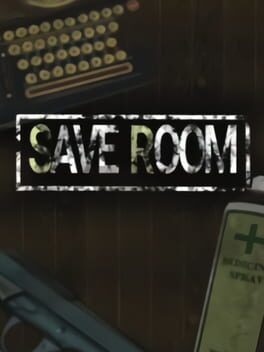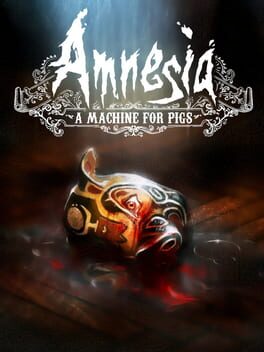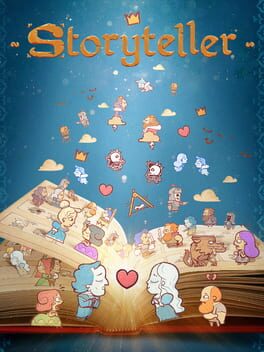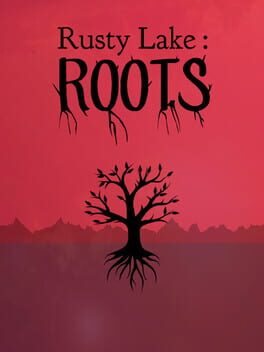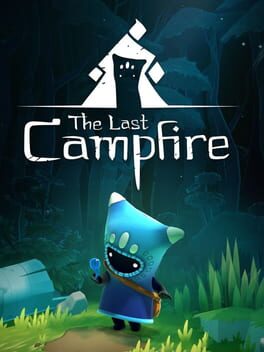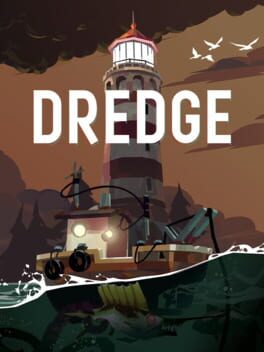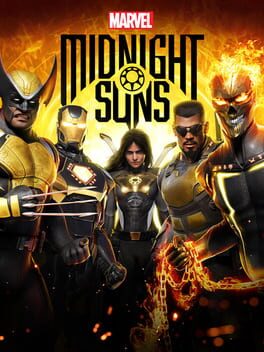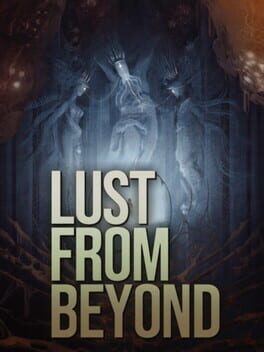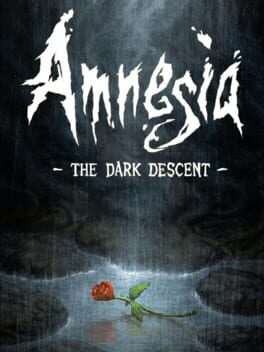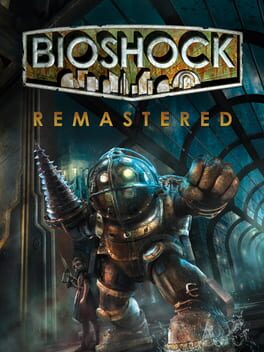ResidentRed
2016
I didn’t really enjoy Layers of Fear. I remember it being popular and thought of as terrifying, and I don’t doubt that at the time it offered something fresh, but so many games have since replicated it and nowadays I feel it just doesn’t hold up. It’s not that I even have something against walking simulators—I’ll always defend them as a genre—but this was a level of dull I couldn't stand. The gimmick of doors disappearing and rooms changing when turning around didn't do it for me, simple as.
The story was also an overused trope, but I liked the use of art, especially the painting. I genuinely think I was just too late in playing it; I probably would’ve had a different opinion years ago.
The story was also an overused trope, but I liked the use of art, especially the painting. I genuinely think I was just too late in playing it; I probably would’ve had a different opinion years ago.
2022
I often criticise the amount of handholding in modern games, but Scorn proudly established itself as the polar opposite. It lacked a tutorial, HUD, or any form of direction, and I was left to figure it out for myself. I even failed to wrap my head around the narrative, but each area was a feast for the eyes, so that became the main drive for me. I mean, its primary selling point was the fact it was inspired by artists H. R. Giger and Zdzisław Beksiński.
Obviously it had its issues, the combat not enjoyable in the slightest. I also could never get behind the idea of the storytelling being confined to an artbook. Wasn’t the entire point to encourage players to create their own theories and conclusions by intentionally being ambiguous? If so, then why dump all of the specifics into something they'd have to pay extra for?
Obviously it had its issues, the combat not enjoyable in the slightest. I also could never get behind the idea of the storytelling being confined to an artbook. Wasn’t the entire point to encourage players to create their own theories and conclusions by intentionally being ambiguous? If so, then why dump all of the specifics into something they'd have to pay extra for?
Save Room: Organisation Puzzle knew exactly what it wanted to be, and that was to appeal to RE fans and the beloved inventory management. The aim was to fit objects into limited spaces, levels getting more complicated while introducing some simple mechanics like combining herbs. It was fine, I liked it for what it was and, of course, it felt familiar.
2023
Alan Wake II continued with its psychedelic story revolving around Alan (he’s a writer) and a new protagonist named Saga that’s pulled into his drama. It improved on every aspect, firmly establishing itself more into the realm of survival horror. Darkly atmospheric, puzzles, and combat that felt satisfying, even challenging in a good way. This time around it wasn’t a near constant barrage of enemies in the woods, but rather it balanced out encounters in a number of interesting environments. Remedy’s love of music was also masterfully implemented—seriously, that chapter was excellent.
Now, as much as I liked Saga’s case board in the beginning, I found it dragged later on. I also couldn't help but get annoyed at the amount of times the words "horror story" was said throughout the narrative. Like, it was a lot. Other than those complaints, it was a worthwhile experience.
Now, as much as I liked Saga’s case board in the beginning, I found it dragged later on. I also couldn't help but get annoyed at the amount of times the words "horror story" was said throughout the narrative. Like, it was a lot. Other than those complaints, it was a worthwhile experience.
Amnesia: A Machine for Pigs didn’t really impress me in the beginning. It was the sheer lack of mechanics that The Dark Descent did well; the stress of having to find tinderboxes, the loss of sanity, the puzzles with being able to interact with so much of the environment. All of it was missing, initial chapters fairly slow. It was such a stark difference.
But then I started to enjoy it more later on. I think being under the Amnesia name did it damage due to there being certain expectations from the fanbase, and I'll admit I probably judged it too harshly myself. It had its own good moments, and despite the enemies being few, there were still some stealth segments. Sure, it was different and made up mostly of walking, but it wasn't terrible.
But then I started to enjoy it more later on. I think being under the Amnesia name did it damage due to there being certain expectations from the fanbase, and I'll admit I probably judged it too harshly myself. It had its own good moments, and despite the enemies being few, there were still some stealth segments. Sure, it was different and made up mostly of walking, but it wasn't terrible.
2023
Storyteller told a story, or rather, many of them. The concept was to follow prompts and insert scenes and characters in order to reach specific conclusions. It had a great sense of humour—getting a laugh out of me more than once—and it was especially fun to mess around with the various outcomes as the game reacted to them regardless of being right or wrong. The little animations of the characters were just worth seeing.
A small nitpick would be that some levels felt very similar. Also, at the end of what was considered the main story, it added “devil levels”, which while fun, came across as an attempt to pad out its very short playtime. Still, I had a good experience however brief; sometimes it's fine to only be a few hours long.
A small nitpick would be that some levels felt very similar. Also, at the end of what was considered the main story, it added “devil levels”, which while fun, came across as an attempt to pad out its very short playtime. Still, I had a good experience however brief; sometimes it's fine to only be a few hours long.
2016
There’s something about Rusty Lake, it’s irresistible to me in a way. It’s probably the weirdness of it all, and the fact I still can’t understand anything other than that the Vanderbooms had some god awful wallpaper. Roots was a longer instalment, the variety in puzzles going beyond anything I’ve played before—the overall aim was to collect body parts from the family for a ritual.
It’s because of the sheer volume of puzzles that some didn’t quite stick. Thirty-three levels with secrets that were only available at the end, that was a lot of stuff to do and definitely got the brain working. Some moments I even had to consult a guide, despite always trying my best to avoid them.
It’s because of the sheer volume of puzzles that some didn’t quite stick. Thirty-three levels with secrets that were only available at the end, that was a lot of stuff to do and definitely got the brain working. Some moments I even had to consult a guide, despite always trying my best to avoid them.
2020
The Last Campfire was colourful, charming and chock full of puzzles revolving around the movement of objects and pieces of terrain. I found the difficulty consistently went up and down throughout, which wasn’t a bad thing as it kept up the pace as well as held my interest. I loved coming across the other wacky characters while exploring, the artstyle and design just lovely.
There was only one thing I disliked about it, and it’s not even something that tends to bother me. The narrator who voices everything, including every character, got on my nerves. They weren’t bad at their job or anything, it was just the accent and I feel terrible for saying so. The problem with a game having a narrator is that you better damn well like their voice because you'll be hearing it a lot.
There was only one thing I disliked about it, and it’s not even something that tends to bother me. The narrator who voices everything, including every character, got on my nerves. They weren’t bad at their job or anything, it was just the accent and I feel terrible for saying so. The problem with a game having a narrator is that you better damn well like their voice because you'll be hearing it a lot.
2023
Dredge was beautiful with its blue ocean stretching in every direction, and the gameplay of going around fishing / salvaging resources was soothing until the Lovecraftian elements became more pronounced. As soon as the sun went down it took on an entirely different atmosphere and that was one of the best things about it—my experience was a pendulum of being relaxed one minute and being stressed the next.
There were five areas in total to explore and complete quests in. Upgrading the boat was fun, as was gaining new abilities to better survive the dangers that lurked below. I felt it overstayed its welcome just a tad, but it really was a treat to discover all the creatures and their monstrous counterparts.
There were five areas in total to explore and complete quests in. Upgrading the boat was fun, as was gaining new abilities to better survive the dangers that lurked below. I felt it overstayed its welcome just a tad, but it really was a treat to discover all the creatures and their monstrous counterparts.
2023
The whole franchise is special, Capcom currently on a successful streak that will either continue with hit after hit or eventually crash and burn. I hope for the former, because these games are a wild time. Resident Evil 4 was certainly faithful with very little cut content, but it was tweaked to make it more accessible by today’s standards. It even fleshed out the characters, Ashley and Luis getting some love.
Combat was extremely fun, and it had a lot to do with the knife. Being able to parry enemy attacks made quite the difference, and while it was possible to go a playthrough without parrying, it really helped with harder difficulties. Speaking of, due to some stand-out tricky segments it was challenging but more than satisfying to master.
Combat was extremely fun, and it had a lot to do with the knife. Being able to parry enemy attacks made quite the difference, and while it was possible to go a playthrough without parrying, it really helped with harder difficulties. Speaking of, due to some stand-out tricky segments it was challenging but more than satisfying to master.
2016
Dark Souls 3 was recommended by a lot of people, so I finally took the plunge. I want to start off by saying how I’m not a Soulslike player, and while I do have the patience for it, I get awfully burnt out after a while. Due to this, toward the end I felt fed up but pushed myself to finish and I’m glad I did. There’s no doubt it’s a good game, each area intricately designed with many nooks and crannies to discover. There was a lot of spectacle, the visuals impressive and the enemies distinct.
Did I find it hard? Well, yes. The thing is, it wasn’t impossible even for an average player like myself. Success relied on persistence as every attempt was a lesson. I see the appeal in games like this, but goodness was it exhausting.
Did I find it hard? Well, yes. The thing is, it wasn’t impossible even for an average player like myself. Success relied on persistence as every attempt was a lesson. I see the appeal in games like this, but goodness was it exhausting.
Marvel’s Midnight Suns was a weird mix of systems, the concoction consisting of a hub area with exploration and relationship management along with missions with turned based combat and deck building. Many have preferred the action itself rather than the friendship busywork, but the whole package just clicked with me. I couldn’t help but like the drama and dysfunctional family dynamics.
It shouldn’t be compared to XCOM, though, as while being turn based it differed quite a bit. Combat took place in small arenas and was simplified overall, cards acting as skills with the choice of upgrading them as well as swapping them in and out. Again it worked for me to the point I was addicted to the loop.
It shouldn’t be compared to XCOM, though, as while being turn based it differed quite a bit. Combat took place in small arenas and was simplified overall, cards acting as skills with the choice of upgrading them as well as swapping them in and out. Again it worked for me to the point I was addicted to the loop.
2021
I don’t usually play “adult” games, but I was curious about Lust From Beyond due to its Lovecraftian themes and the fact it wasn’t just about the sex. I mean, it had a lot of sexual content—including several graphic scenes that definitely tried to be shocking—but it also had a story to tell and actual gameplay. I liked the environments quite a lot, from a cult’s mansion to the realm of Lusst'ghaa that took inspiration from the works of H.R. Giger.
That said, both the combat and stealth were awkward and not entirely enjoyable due to hitboxes being off. And while I liked some of the puzzles, there were also those that bored me to tears. One segment in particular forced me to walk at a snail's pace with a wobbly camera; I outright hated it. The aesthetics may have been good, but I had to question some of the decisions made for the rest.
That said, both the combat and stealth were awkward and not entirely enjoyable due to hitboxes being off. And while I liked some of the puzzles, there were also those that bored me to tears. One segment in particular forced me to walk at a snail's pace with a wobbly camera; I outright hated it. The aesthetics may have been good, but I had to question some of the decisions made for the rest.
I used to watch other people play Amnesia: The Dark Descent when it was popular to do so, skip some years and I decided to try it for myself. There’s no doubt that it showed its age, but that was to be expected. I loved the Lovecraftian themes in the story, I ate up every little morsel I could. As for the gameplay itself, I think the sanity was done well—many other games have tried to replicate it for a reason—but it’s certainly an acquired taste. The physics based puzzles were a favourite, Frictional's mechanics always satisfying to me.
While the enemies were fine, I will say it lost something after realising most of the monsters despawned after not seeing me for a few minutes. It was easy to avoid them, danger mostly an illusion. Not entirely a bad thing, but rather than being obstacles that posed a threat, they were obstacles that wasted time.
While the enemies were fine, I will say it lost something after realising most of the monsters despawned after not seeing me for a few minutes. It was easy to avoid them, danger mostly an illusion. Not entirely a bad thing, but rather than being obstacles that posed a threat, they were obstacles that wasted time.
2016
I’ll never forget my first Bioshock experience, so it was great to delve back into Rapture with its politics and downright disturbing lore. My opinion on it being one of the best narratives in the gaming world didn’t change, every character’s spiral into madness more than interesting to listen to. Even the atmosphere held up, albeit I was less scared this time around.
The combat was still fun as well, I preferred using the wrench; arguably the most powerful weapon, and there was something about going around bashing everything. Plasmids obviously had their uses to, whether it was using them on the environment or just experimenting with what was most enjoyable.
As for the added content, I liked and spent time on both the Challenge Rooms and Museum of Orphaned Concepts.
The combat was still fun as well, I preferred using the wrench; arguably the most powerful weapon, and there was something about going around bashing everything. Plasmids obviously had their uses to, whether it was using them on the environment or just experimenting with what was most enjoyable.
As for the added content, I liked and spent time on both the Challenge Rooms and Museum of Orphaned Concepts.
